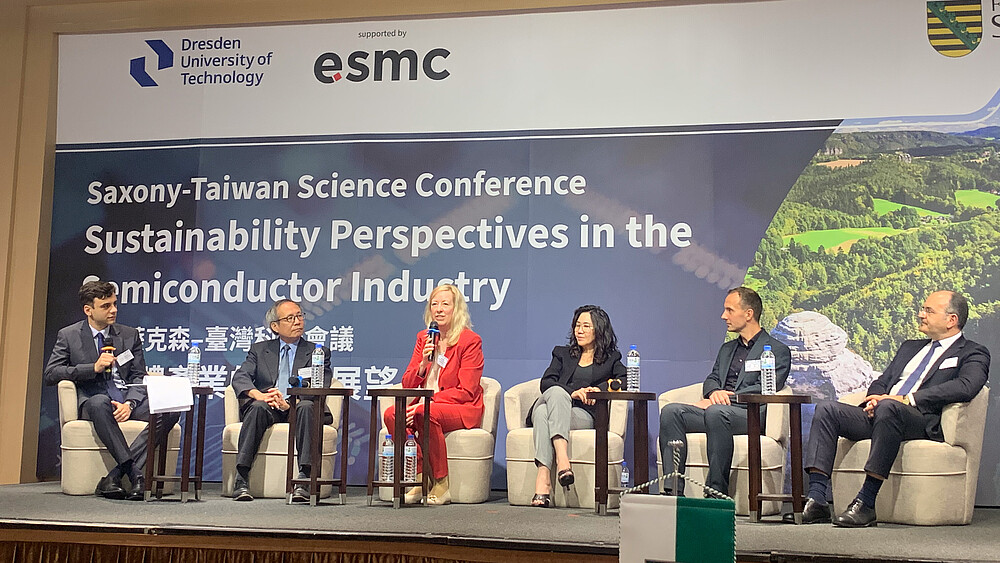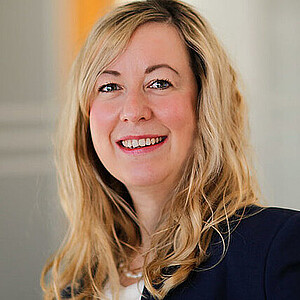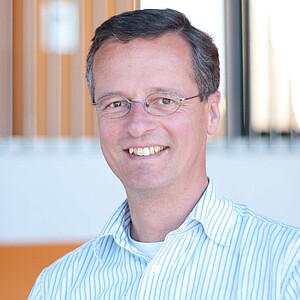University delegation to Taiwan, Japan and Singapore opens up diverse opportunities for Saxony and the Zittau/Görlitz University of Applied Sciences.

A great success and a great opportunity for the Zittau/Görlitz University of Applied Sciences (HSZG). From September 27 to October 5, 2025, a delegation from the university was part of the Saxon delegation trip to Taiwan, Japan and Singapore led by Saxony's Minister President Michael Kretschmer. The aim of the trip was to highlight Saxony's strengths in research, business and culture and to establish new collaborations.
The headlines were very catchy in the decade. In 2012, the US administration under President Barack Obama postulated a "Pivot to Asia", international trade magazines such as "The Economist" and "Foreign Affairs" published articles on the rise of Asia ("The 21st Century Will Be an Asian One") and the decline of the West ("The West in Decline").
What is the situation in Asia in 2025? Which markets are booming, what are the key technologies of the future? What opportunities are there for the Free State of Saxony, its science, economy and culture in cooperation with Asian partners? A business and science conference in Taipei, Taiwan, a visit to the German Pavilion at Expo 2025 in Osaka, Japan, a visit to the German Business Office and the National University of Singapore, one of the leading universities in Asia and the world, and a meeting with company representatives in Singapore provided answers - for the HSZG and the Free State of Saxony.
With around 70% of the global semiconductor market, Taiwan is a key player in the high-tech industry. Customers such as Apple, Microsoft, AMD and NVIDIA rely on the products of TSMC (Taiwan Semiconductor Manufacturing Company), the world's leading semiconductor manufacturer headquartered in Hsinchu, Taiwan. Semiconductors are used in computer and communication technologies, solar and automotive technology as well as industrial applications and are indispensable for digitalization, mobility and innovation. The high-tech companies based in Dresden - including Infineon Technologies AG, Global Foundries (GF) and TSMC (Taiwan Semiconductor Manufacturing Company Ltd.) - are also dependent on well-trained specialists to ensure their innovative strength and competitiveness in the long term.
Against this backdrop, the Saxon delegation's trip began with the scientific conference "Sustainability Perspectives in the Semiconductor Industry" on September 30 in Taipei, Taiwan. There, international experts discussed market trends, technological developments and sustainable cooperation between Saxon and Taiwanese business and science.
Prof. Dr Sophia Keil, Vice President for Research, Transfer and International Affairs at the HSZG, took part as a speaker on the panel "Sustainable Talent Development" panel. She provided important impetus for the sustainable promotion of talent and emphasized the central role of universities of applied sciences in the training of qualified specialists. The conference thus not only offered insights into the future of the semiconductor industry, but also concrete approaches for close international cooperation - both in the field of research and in the development of high-tech talent for Saxony.
In recent years, the HSZG has established itself as an active partner to the semiconductor industry in research and specialist training. Together with the district of Görlitz, international exchange formats such as the Taiwan Day 2024 and the International Business Conference 2025 have been initiated. As part of its high-tech strategy, the university is currently developing two new, practical Bachelor's degree courses: "Semiconductor Processes and Materials Chemistry" and "Mechatronics for Manufacturing". The courses will start in fall 2026.

The panel discussion in Taipei showed how crucial close cooperation between universities, industry and international partners is for the sustainable development of talent in the semiconductor industry. Universities of Applied Sciences in particular - like us here in Zittau/Görlitz - can play a key role in this. Cooperation with Taiwan not only opens up valuable perspectives for the exchange of knowledge and best practices, but also creates new opportunities for our students to benefit directly from international projects, experience and innovations. In this way, we strengthen both the competitiveness of our talents and the future viability of the industry in the long term.
”"Designing Future Society for Our Lives" is the motto of the Expo 2025 world exhibition in Osaka, Japan, from April 13 to October 13, 2025. 158 countries are taking part in the Expo, including Germany with its own pavilion. After being welcomed by the German Ambassador to Japan, Petra Sigmund, the participants of the Saxon delegation visited the German Pavilion on the Expo 2025 exhibition grounds and met with companies and institutions from Saxony and Japan.
"The visit to Japan provided an excellent opportunity to get to know various companies and institutions and to establish new international contacts with scientific institutions," says Inna Hauf, Coordinator for International Affairs at the HSZG. "Many discussions will be continued in Germany in the coming weeks in order to ensure sustainable cooperation and the development of talent in the long term," says Inna Hauf. Concrete steps are already planned with Tekscend Photomask, the world's leading supplier of photomasks for semiconductors and silicon stencil masks.
With an area of 728.6 square kilometers, Singapore is the smallest national territory in Southeast Asia, but the city-state has developed into a center of the Asian and international business and financial world in recent decades. The Singaporean-German Chamber of Industry and Commerce is one of the largest German chambers of commerce abroad worldwide and acts as a central point of contact for German companies and institutions in Singapore. The Business Promotion Agency of the Federal Republic of Germany is also present in Singapore. Together with the German-Singaporean Chamber of Industry and Commerce, it operates the "GTAI Hub" to support German companies in their expansion into the Asian market - which is also of benefit to the HSZG.

We were able to establish contacts with company representatives from the semiconductor industry in Taiwan, Japan and Singapore, including Infineon Technologies AG, Tekscend Photomask, GlobalFoundries (GF) and TSMC (Taiwan Semiconductor Manufacturing Company Ltd.), and discuss our new study programs 'Semiconductor Processes and Materials Chemistry' and 'Mechatronics for Manufacturing' with them. In this way, we are making an active contribution to the development of a sustainable skilled workforce for the semiconductor industry in Saxony.
”Away from the economic talks, representatives of the HSZG met with the German Academic Exchange Service (DAAD) in Singapore. On the agenda: discussion of future cooperation opportunities in the areas of student exchange, joint-degree programs, faculty mobility and summer schools - an important step towards more academic exchange between Germany, the Free State of Saxony and Southeast Asia.
"The talks with the DAAD Singapore on student exchanges and with the National University of Singapore (NUS) on joint research projects show how international cooperation enriches education and research. Such partnerships promote the exchange of students and researchers and enable practical research and innovation in close cooperation with international partners," says HSZG Vice President Prof. Dr. Sophia Keil.
In September/October 2025, Zittau/Görlitz University of Applied Sciences had three representatives on site in Asia: Prof. Dr. Sophia Keil, Vice President for Research, Transfer and International Affairs, Prof. Dr.-Ing. Klaus ten Hagen, Dean of the Faculty of Electrical Engineering and Computer Science, and Inna Hauf, Coordinator for International Affairs. In Taiwan and Japan, Saxony's Minister President Michael Kretschmer was accompanied by a delegation of over 50 representatives from politics, business, science and culture.
The delegation trip to Taiwan, Japan and Singapore was a great success for the Zittau/Görlitz University of Applied Sciences and a significant step in its international positioning. The newly established and deepened contacts with leading companies in the semiconductor industry - including Infineon Technologies AG, Tekscend Photomask, GlobalFoundries (GF) and TSMC (Taiwan Semiconductor Manufacturing Company Ltd.) - open up valuable prospects for future cooperation in research, teaching and the development of skilled workers. Discussions with the Fraunhofer network, specifically the Fraunhofer Institute for Electronic Nano Systems ENAS headed by Prof. Dr. Harald Kuhn, on joint research projects and scientific cooperation also illustrate the HSCG's growing potential as a partner for innovative and practical research. In autumn 2025, the talks that have already begun will be continued - with the aim of further expanding the international partnerships and establishing the university as an active player in the global science and technology dialog.
Like the HSZG, Minister President Michael Kretschmer draws a positive conclusion: "The trip underlines Saxony's claim to be a bridge builder between Europe and Asia," says Saxony's Minister President.
Text: Prof. Sophia Keil, Frank Leberecht, Inna Hauf